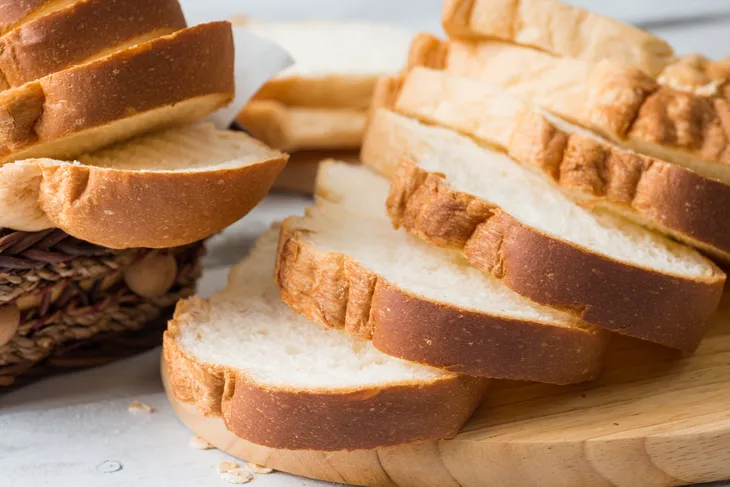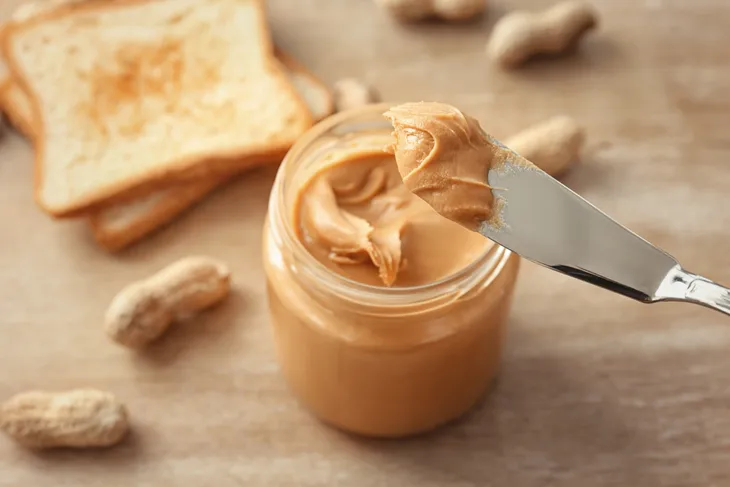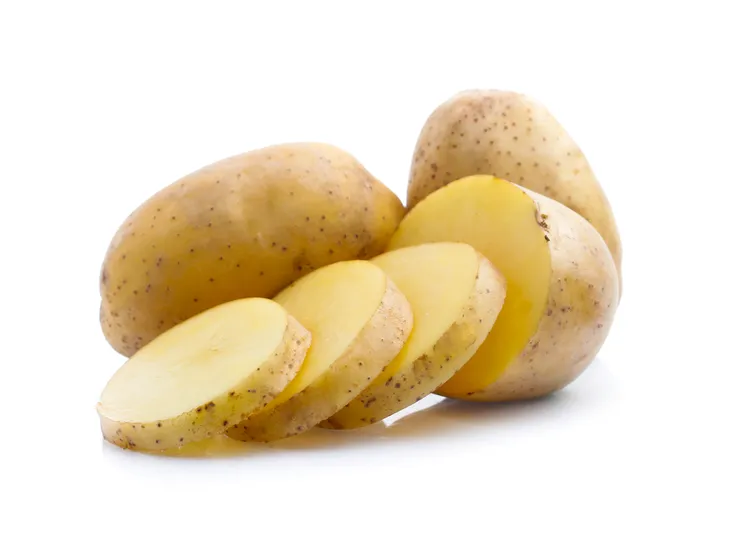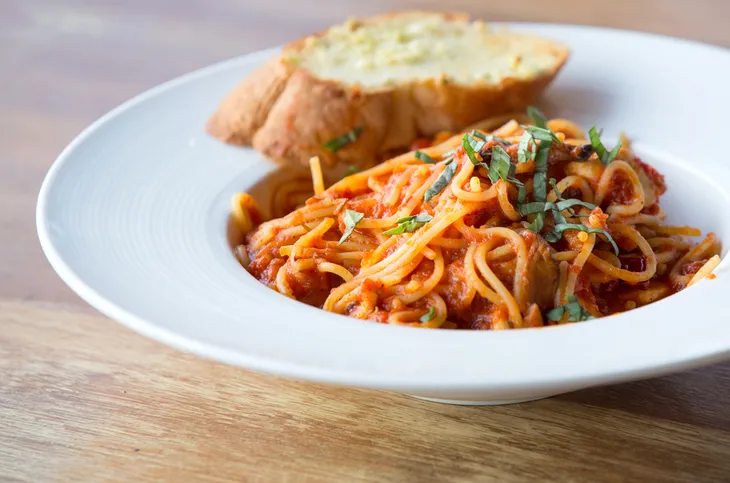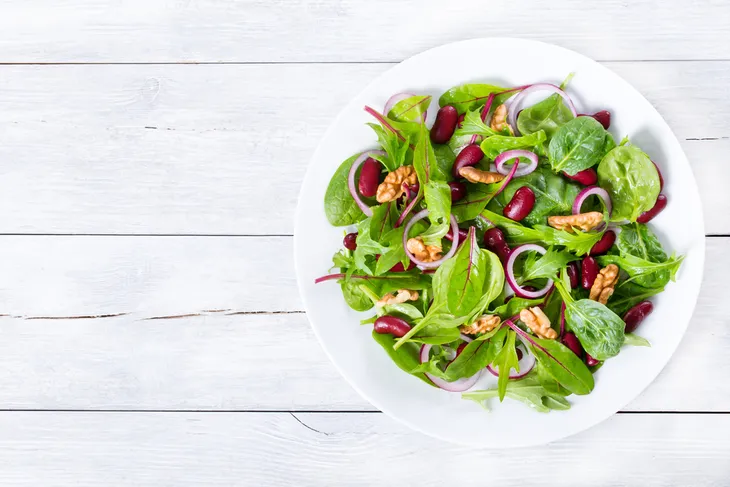Trying to lose weight, or maintain a healthy weight, can be a guessing game. Oftentimes we find ourselves plateauing or gaining back weight for what seems like no reason, which can be really frustrating. In cases like this, it’s best to assess what you’re putting into your body to judge if your diet is slowing your progress.
The key to successfully living a healthy lifestyle is to never settle. Always push yourself to learn more about your body and the foods you eat, and evaluate what your goals are and how your intake can support those goals. Different foods metabolize at different rates. Some may speed metabolism up, while others can slow it down. Understanding how foods fuel your body and which ones make it feel sluggish can be the key to getting over a plateau. Having healthy alternative foods on hand can also help you achieve your weight loss goals…
White Bread
Not all carbs are created equal. Carbs don’t need to be eliminated like some diets would have you believe (i.e., the Atkins diet). To meet our body’s nutritional needs, a diet should consist of 45- to 65-percent carbohydrates, according to the Mayo Clinic. That being said, refined carbs are the ones you should avoid. White breads (and generally all refined wheat grains) may be the base to your healthy lunch, but the Mayo Clinic also notes that those refined carbs turn to sugar and slow your body’s metabolism right down.
Alternative: Sprouted Grains. What does sprouted mean exactly? Sprouted grains are essentially baby grains. When grains sprout they have increased nutrients to help the grain grow—including proteins, vitamins, and antioxidants. Sprouted grains are high in fiber and won’t block your metabolism. Huzzah!
Peanut Butter
Say it ain’t so! Put down your spoons, and let’s talk about the favorite protein source for many. It’s easy to eat with some apple slices before a workout, or dip celery stalks into. Unfortunately, due to the growing process, it may be slowing your metabolism with something called aflatoxins, a type of fungus. According to the U.S. National Library of Medicine, foods (i.e., peanuts and peanut butter) containing the mold that produces aflatoxin have been linked to slower metabolism—it can counteract the good bacteria in your gut (i.e., probiotics). Peanuts are also a common food sensitivity. Popular peanut butters are usually made with high sugar content as well, making that smear more of a desert than a healthy snack.
Alternative: Almond Butter. Almond butter can actually boost your metabolism! It’s high in amino acid L-arginine, which can increase the production of human growth hormones. Almonds are naturally sweeter, which means you don’t need those added sugar to make your snack delicious. Sunflower seed butter is also another alternative to those who are allergic to nuts.
Potatoes
A staple in so many dinners, it can be hard to give up taders. The University of Chicago Medical Center claims potatoes contain a chemical that can slow your metabolism. Potatoes are also often dressed up in unhealthy ways to make them flavorful (i.e., with butter and sour cream).
Alternative: Cauliflower. Potatoes are a plain starch, which makes them a fantastic base for so many recipes. Well, as luck would have it cauliflower is also a plain vegetable that can be roasted, mashed, pureed into soup, and enjoyed as a base just like potatoes. Cauliflower is also a great source of B vitamins, another metabolism booster!
Fruit Juice
Yes, fruits are good, but fruit juice can be bad! The fact is that most fruit juices contain just as much sugar, if not more, than soft drinks. We may be deceived by the vitamins and antioxidants that juices promise, but the small amount within your favorite juice often doesn’t make up for the large amount of sugar.
Alternative: Fruit-Infused Water. Infusing your water with fresh fruit is a great way to increase your water intake. It not only helps you stay hydrated—it increases your metabolism as well. Great fruits to pop into water are strawberries, raspberries, apricots, oranges, and lemon (all metabolism friendly).
Pasta
A favorite for many, myself included, pasta can be heart wrenching to cut out of your diet, but this refined carb isn’t doing your metabolism any good. Pasta can cause bloat and according to Harvard School of Public Health research, certain types of pasta can spike your blood sugar, causing a sleepy lethargic feeling after your meal (making it less likely that you’ll get active afterwards).
Alternative: Spaghetti Squash. When roasted, this vegetable naturally shreds with a fork into perfectly formed noodles as the perfect gift from Mother earth. One thing you’ll notice when you make this swap, is that it’s not so much the pasta you were in love with, but what it was topped with! So make a fresh sauce with your favorite veggies and lean proteins. Trust me, you’ll be saying “arrivederci!” to traditional wheat pasta in no time.
Salad
Say what? Yeah, salad may have become synonymous with healthy eating and weight loss, but fancy it up in the wrong way and you’ll kill your metabolism. Avoid salads topped with creamy dressings, heavy cheeses, croutons, tortilla strips, candied nuts, and craisins. These additions take an otherwise healthy, diet friendly meal and squash your day’s efforts.
Alternative: Salad. There’s that word salad again, but this time I suggest a good healthy alternative to the “wolf in sheep’s clothing” salad we talked about above. Instead, choose a salad with a vinegar based dressing, and top with fresh fruits and vegetables, beans, and lean proteins like chicken and shrimp to fill you up and keep your nutritional intake on track. According to Prevention magazine, vinegar with its acetic acid content, triggers genes into action by pumping out proteins and breaking down fats.
Margarine
Margarine marketers would love for you to believe that this is the best alternative to butter. However, London-based cardiologist and National Obesity Forum advisor, Dr. Aseem Malhotra says, “I would choose butter over margarine any day of the week.” Margarines, many which contain high amounts of partially hydrogenated oils, have been linked to heart disease, type 2 diabetes and stroke.
Alternative: Coconut Oil. I was tempted to put butter as an alternative, because it truly is a better option compared to margarine (especially organic grain-fed butter). However, coconut oil is better. This diet hero contains so many health benefits—including speeding up metabolism—and it can be cooked and baked with as well.
Artificial Sweeteners
The saying “if it’s too good to be true, it probably is” should have been written about artificial sweeteners. While sweeteners don’t contain any calories, they do taste sweet. The brain knows this, and expects calories to come. According to research from WebMD, in response the brain releases dopamine (the brain’s reward and pleasure chemical) into your system in anticipation of the calories…that never come. This response causes cravings for carbs and sugar. Multiple studies, including one from Purdue University, show that those who consume sweeteners over sugars will typically gain weight.
Alternative: Sugar. Whether it’s cane sugar, coconut palm sugar, maple syrup, honey, agave nectar, or otherwise—real sugars are better than artificial ones. Yes, they have calories and yes, they should be used in moderation, but with real sugar the body knows what to do and how to process it. While eating sugar won’t speed up your metabolism—it also won’t trigger additional cravings by trying to trick your brain like sweeteners do.
Coffee
The problem isn’t coffee itself, in fact coffee is full of an amazing thing they call caffeine, which can provide energy to burn calories and conquer the day. The problem is, we’ve gone fancy with our java. Pumpkin spiced lattes, caramel macchiatos, and the like are taking our morning coffees and turning them into an entire meal worth of calories. Many specialty drinks weigh in around the 350-calorie mark, which means any benefits coffee provides has been stolen away with sugar and fats.
Alternative: Basic Coffee. Slowly, but surely with a diet and lifestyle change you will crave and require less sugar and fats to enjoy the things you love. Coffee is no exception. Trust me; I was former double cream double sugar girl! I realize going straight to black may be too jarring, but skip the specialty coffees. Swap heavy cream for milk and just use one sugar to bring your cup down to about 30 calories. Add a sprinkle of cinnamon and you’ll also be helping regulate your body’s blood sugar levels. According to research from the Centers for Disease Control and Prevention, coffee is a natural appetite suppressant, and does provide a boost of energy that increases the metabolic rate, which aids in fat burning.

